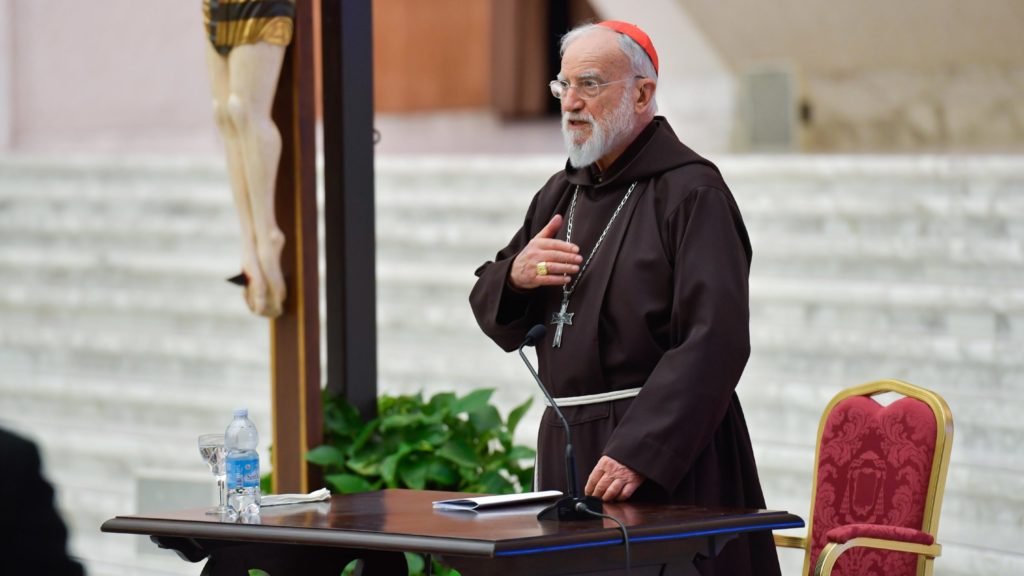The Second Vatican Council was a "prophetic initiative" to compensate for the church's refusal to engage with society, said the preacher of the papal household.
In the first Lenten reflection for the Roman Curia delivered by Cardinal Raniero Cantalamessa March 3, the Capuchin friar said that Vatican II showed the church how "to walk through history, alongside humanity, trying to discern the signs of the times."
The reflection came after members of the Roman Curia suspended their usual activities to participate in a week of spiritual exercises for the beginning of Lent Feb. 26-March 3. The chair reserved for Pope Francis in the Vatican audience hall was empty.
Cardinal Cantalamessa said that the 19th and 20th centuries were a "bitter lesson" for the church, which failed to take note of the rise of modernism and led to infighting that made the church "lose pace with the times."
The cardinal said that the resulting openness to the Holy Spirit displayed in Vatican II should be at the heart of the synodal process currently underway in the church, and that implementing decisions taken within the church requires "time, patience, dialogue, tolerance; sometimes even compromise."
He clarified that when done with the Holy Spirit, compromise is "not a yielding or discounting of the truth, but it is charity and obedience to situations."
The cardinal compared St. Peter's acceptance of the Gentiles inspired by the Holy Spirit to the ways the church has opened itself to the laity, and in particular women, in recent decades. He cited the new apostolic constitution, "Praedicate Evangelium" ("Preach the Gospel"), as a step toward a more inclusive church.
The new constitution, promulgated by Pope Francis in March 2022, opens the leadership of all but two offices of the Curia to laypeople.
Cardinal Cantalamessa underscored the need for the church to be in communion during its renewal, and urged the officials present not to demonize each other or "desire the triumph of our choice over that of our adversaries."
While political, social and theological differences are natural, he said, asking God to choose sides is "like asking a father to choose between two children."
"God is with everyone and therefore he cannot be against anyone. He is the father of all," said the cardinal.
Cardinal Cantalamessa encouraged the officials to "be honest, in the court of your heart, with the person you disagree with," and "remove the poison from our judgment" in order to understand the other without condemning them.

